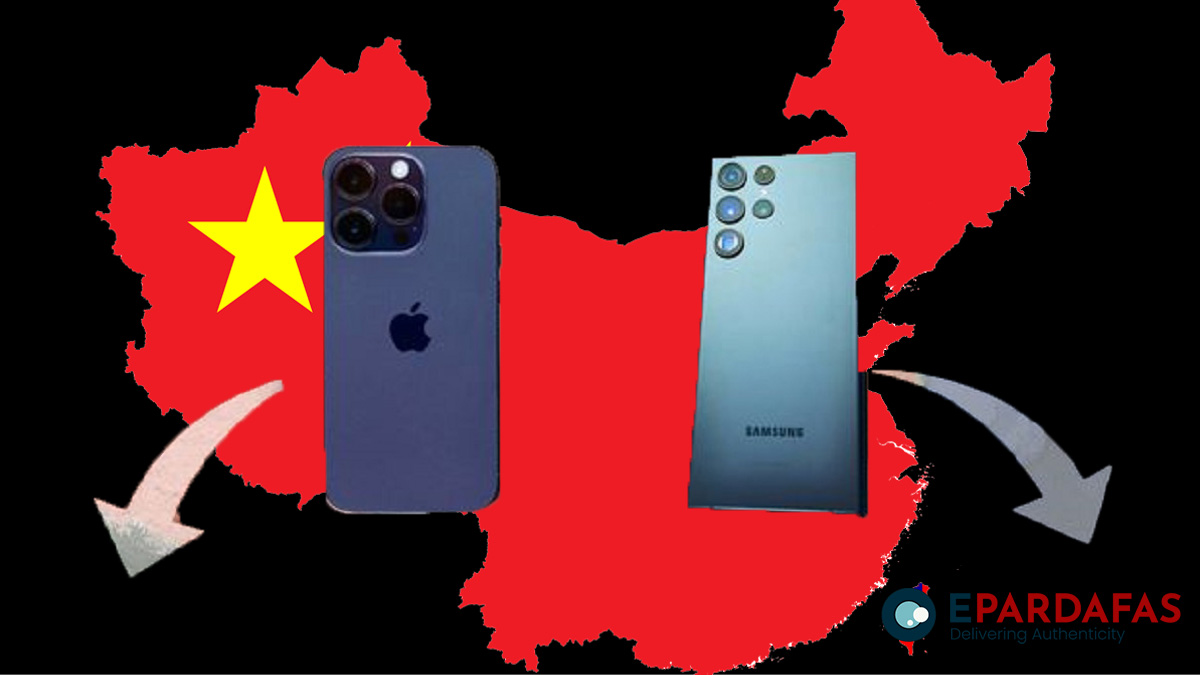
Two Former Samsung Employees Arrested for Leaking Advanced Chip Technology to China
Two former high-level Samsung employees have been arrested in South Korea, accused of leaking advanced semiconductor technology to develop in China. The Seoul Metropolitan Police Agency’s Industrial Technology Security Investigation Unit made the arrests on September 6, charging the two men with violating the Industrial Technology Act, a law designed to protect the country’s crucial technological assets.
The suspects, identified only by their surnames, Choi, 66, and Oh, 60, held prominent positions in Samsung Electronics and SK Hynix, both of which are leaders in global chip manufacturing. Choi was an executive at both companies, while Oh worked as a senior researcher at Samsung. Authorities believe that the two conspired to provide China with cutting-edge chip technology, specifically 20-nano DRAM semiconductor processes, which Samsung developed in 2014.
Timeline of Arrests
The police investigation into Choi and Oh began in January when police initially sought an arrest warrant for Oh, which was denied. However, further investigation led to more evidence, and on September 6, the Seoul District Court issued arrest warrants for both Choi and Oh, citing them as flight risks.
According to the police, Choi had established a semiconductor company in China named Chengdu Gaozhen, based in the city of Chengdu. Oh served as an executive at the company, and Choi is believed to have recruited other former Samsung employees to join the effort. Investigators are now looking into whether additional technology leaks involving other South Korean experts may have occurred.
The technology allegedly leaked by the two former employees is highly advanced and involves over 700 processes used in producing 20-nanometer DRAM semiconductors. These processes are critical to the production of memory chips, which are essential for a wide range of modern electronic devices.
The $3.2 Billion Leak
The South Korean police estimate that the stolen technology is worth a staggering $3.2 billion. The leaked data is believed to have been instrumental in helping China develop its own chip technology, at a time when global tensions surrounding semiconductor supply chains are at an all-time high.
This arrest comes amid growing concerns about China’s aggressive push to build a self-reliant semiconductor industry. In June, the Chinese government poured $47.5 billion into its chip sector, an effort to counter the U.S.-led restrictions that have limited China’s access to advanced semiconductor technology. The United States, along with several of its allies, has imposed strict export controls on high-end chips and the machinery used to manufacture them, citing national security concerns.
Global Impact of Chip Technology Theft
The technology in question is part of the global race to dominate the semiconductor industry, which is crucial not only for consumer electronics but also for military applications. Advanced chip technology, which can now measure in single-digit nanometers—the size of just a few dozen atoms—plays a pivotal role in modern defense systems, artificial intelligence, and other high-tech fields. Larger chips, while less advanced, are equally important, being found in virtually all electronic devices, from smartphones to vehicles.
The stakes in the semiconductor industry have never been higher. For China, securing a steady and advanced supply of chips is crucial for its economic and military ambitions. The Chinese Communist Party (CCP) has been aggressively pursuing ways to develop its own semiconductor industry, partly due to the increasing restrictions placed on it by the United States and its allies. The CCP’s technological advancements have raised alarms due to China’s history of intellectual property theft, its lack of adherence to international ethics, and its ongoing military and financial support for Russia in the Russia–Ukraine war.
International Concerns About China’s Chip Dominance
Global leaders have been vocal about the dangers of allowing China to dominate the chip industry. In April, U.S. Commerce Secretary Gina Raimondo met with European Union representatives to address concerns over China’s growing influence in the semiconductor market. Raimondo highlighted that China is expected to produce about 60 percent of all new “legacy” chips in the coming years, posing a threat to market stability due to heavy subsidies from the Chinese government.
“We know there is a massive subsidization of that industry on behalf of the Chinese government, which could lead to huge market distortion, and so that’s why we’re focused on it,” Raimondo said during a press conference in Leuven, Belgium.
The arrests of Choi and Oh signal South Korea’s determination to protect its technological edge and prevent further leaks to foreign powers, particularly as the geopolitical competition for semiconductor dominance intensifies. As the investigation continues, more revelations about the scope of the alleged theft and its impact on the global chip market may come to light.
- Gold Price Rises by Rs 1,200 Per Tola in Nepal
- Nepali Congress Leader Dr. Shekhar Koirala Meets Former UK Foreign Secretary James Cleverly
- Bollywood Actor Saif Ali Khan Injured in Knife Attack at Mumbai Residence
- Kankai Bridge: Contract Extended Five Times, Construction Progress Stalls at ‘Half’ After 13 Years













Comments